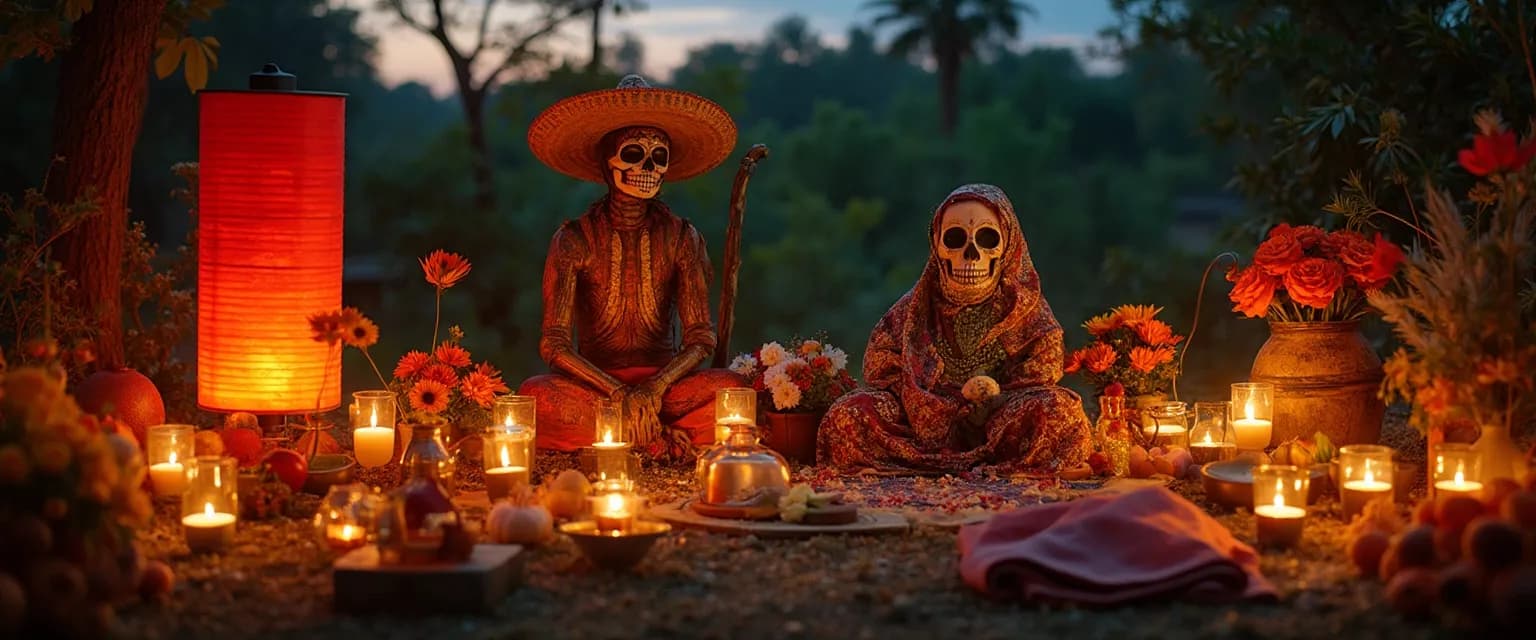7 Supportive Things to Say When Someone's Loved One Dies Across Cultures
Finding the right words when someone's loved one dies can feel like navigating a minefield of emotions. Across cultures, the challenge remains the same – how to offer comfort without causing additional pain. When someone shares news of a loss, our instinct is to help, but what to say when someone loved one dies often leaves us frozen, searching for perfect words that don't exist. The truth is, grief is both universal and deeply personal, shaped by cultural traditions that influence how people process loss.
Understanding what to say when someone loved one dies requires cultural sensitivity. While grief is universal, its expression varies widely across communities. What brings comfort in one culture might cause offense in another. This awareness doesn't complicate offering support – it enriches it, allowing you to provide meaningful comfort techniques that truly resonate with the bereaved person's experience.
When words feel inadequate, remember that your presence often speaks louder than any phrase. The acknowledgment of someone's pain creates a bridge of human connection that transcends cultural differences.
What to Say When Someone's Loved One Dies: Universal Approaches
Certain expressions of sympathy transcend cultural boundaries when figuring out what to say when someone loved one dies. Simple acknowledgments like "I'm so sorry for your loss" validate grief without imposing expectations on how someone should feel. This direct recognition shows you see their pain without attempting to minimize or fix it.
The power of presence often outweighs finding perfect words when someone's loved one dies. Statements like "I'm here for you" or "You're not alone in this" create a foundation of support. Follow these with specific offers of help: "I can pick up groceries on Thursday" or "I'd like to drop off meals this week" provides tangible support without burdening the grieving person with decisions.
Avoid phrases that unintentionally diminish grief, such as "They're in a better place" or "Everything happens for a reason." Instead, focus on building emotional resilience together with statements that honor both the deceased and the bereaved's feelings: "I remember how kind they always were" or "This must be incredibly difficult for you."
When words feel impossible, simply stating "I don't know what to say, but I care about you" acknowledges the magnitude of their loss without pretending to have answers. This honesty creates space for authentic connection during overwhelming times.
Cultural Variations in What to Say When Someone's Loved One Dies
Eastern traditions often approach grief with specific rituals and phrases. In Japanese culture, "ososhiki ni oite goseikyo arigatou gozaimasu" expresses gratitude for attendance at a funeral, while Chinese traditions might include offering white envelopes containing money (known as "pai pao") to help with funeral expenses – a practical expression of support.
Western approaches to what to say when someone loved one dies typically emphasize emotional validation. In many European and North American contexts, sharing memories of the deceased provides comfort: "I'll always remember how they lit up the room with their laugh" creates a moment of connection through shared remembrance.
Religious contexts offer established frameworks for condolences. Muslims might say "Inna lillahi wa inna ilayhi raji'un" ("We belong to Allah and to Him we shall return"), while Jewish traditions include saying "May their memory be a blessing." Understanding these traditions helps you navigate difficult transitions with appropriate respect.
Equally important is knowing what to avoid. In some cultures, mentioning death directly is taboo, while others consider avoiding the topic disrespectful. When uncertain, err on the side of simple, heartfelt expressions of care.
Finding Your Authentic Voice When Someone's Loved One Dies
The most meaningful condolences balance cultural awareness with personal authenticity. When uncertain about what to say when someone loved one dies, it's perfectly acceptable to ask someone familiar with the culture for guidance. This demonstrates respect and genuine care.
Remember that support extends beyond initial condolences. Check in regularly with simple messages like "I'm thinking of you today" or "How are you feeling this week?" These ongoing connections often matter most as the initial wave of support recedes.
Ultimately, knowing what to say when someone loved one dies isn't about perfect words but about showing up with sincerity. Your willingness to acknowledge someone's grief, respect their cultural traditions, and remain present through their journey creates space for healing that transcends any single phrase or custom. This compassionate presence becomes a gift that supports them through one of life's most challenging passages.




